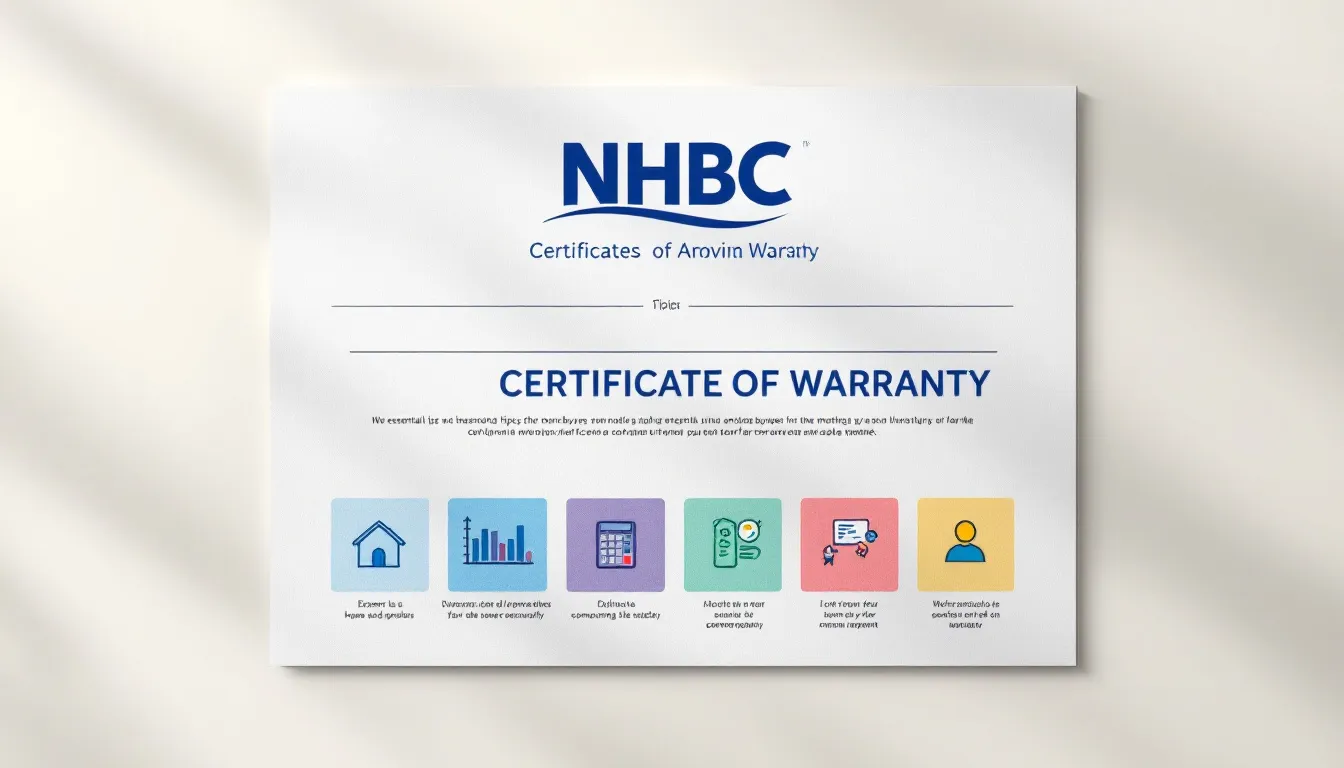Wondering why you need new build property insurance? Simply put, it’s essential for protecting your investment and meeting mortgage requirements. This guide will help you understand what it covers and how to choose the best policy for your new home.
Key Takeaways
- New build property insurance is essential for protecting investments against risks like fire, flood, and structural damage, as mortgage lenders often require buildings insurance upon loan approval.
- Key types of insurance for new builds include buildings insurance, which covers the property’s structure, and contents insurance, which protects personal belongings within the home.
- Homeowners should actively compare quotes and consider options like combining policies and enhancing security to reduce insurance costs while ensuring comprehensive coverage.
Understanding New Build Property Insurance

Purchasing a new build property is an exciting milestone, but protecting this significant investment with the right insurance is crucial. New build property insurance is not just a formality; it’s a necessity to protect against unforeseen events like fire, flood, and structural damage. Moreover, mortgage lenders typically require buildings insurance as a condition for loan approval, ensuring that the property remains protected from the moment you exchange contracts. Despite the modern construction and advanced materials used in new builds, these homes can still be vulnerable to risks such as flood damage and fire.
Unlike older properties, new builds don’t come with the baggage of wear and tear from previous owners, which can often lead to expensive repairs. However, this doesn’t mean they are free from potential structural issues. Coverage against structural problems is a key consideration, especially since 70-80% of new build properties come with a new build warranty, a structural warranty, and an NHBC warranty.
Knowing the scope and limitations of these warranties is essential for comprehensive protection. The NHBC provides warranty coverage for approximately 1.5 million properties in the UK, emphasizing the importance of having this layer of security.
Key Types of Insurance for New Builds

For insuring your new build home, two primary types of insurance are necessary: buildings insurance and contents insurance. Home insurance for new build homes covers the structural aspects of your home, while contents insurance protects your personal belongings within it.
These policies are designed to address the unique risks associated with new build properties, ensuring that both the structure and the contents of your brand new home, including fixtures and fittings, are adequately protected off plan.
Buildings Insurance
Buildings insurance serves as a cornerstone of any new build home insurance policy. This type of insurance covers damage to the structure of the property, including walls, roofs, and windows, protecting against risks such as fire, flood, and subsidence. Mortgage lenders mandate buildings insurance upon exchanging contracts, ensuring the property is protected even before you move in.
Buildings insurance is of paramount importance. It provides peace of mind by covering loss and damage to the structure, which can include everything from storm damage to accidental fires. Tailoring your buildings insurance policy to the specific needs of your new build home is crucial for long-term security.
Contents Insurance
While buildings insurance covers the structure of your home, contents insurance is designed to protect your personal belongings against damage, loss, and theft. This type of insurance cover is recommended for safeguarding everything inside your home, from furniture and electronics to clothing and jewelry.
Depending on the policy’s terms, contents insurance can also extend to items in your garden or outbuildings. This comprehensive contents cover ensures that your personal property is protected against a wide range of risks, providing additional peace of mind for new build homeowners.
The Role of NHBC in New Build Homes

The National House-Building Council (NHBC) is pivotal in the new build housing market. Primarily, the NHBC offers warranties for new homes built by approved builders, ensuring that these properties meet specific quality and safety standards. With approximately 1.5 million properties in the UK covered by NHBC warranties, their widespread importance is evident, including the nhbc buildmark certificate.
What is the NHBC Buildmark Warranty?
The NHBC Buildmark warranty is a ten-year warranty designed to protect homeowners against potential issues arising from construction defects, including the buildmark certificate. For the first two years, this warranty covers defects caused by the builder’s work, such as leaking windows or faulty heating. After this initial period, the warranty continues to provide coverage for certain structural defects for the remaining ten years.
If any problems occur, homeowners should contact the builder to address the issue within the first two years. If the builder fails to respond, the NHBC can step in to offer assistance, potentially appointing another contractor to carry out the necessary work.
What Does NHBC Buildmark Not Cover?
While the NHBC Buildmark warranty provides extensive coverage, it does have its limitations. Exclusions typically include damages from wear and tear or external events like natural disasters.
For instance, if your new build suffers accidental damage due to a severe storm, it may not be covered if the damage is deemed a result of wear and tear rather than a new roof construction defect, requiring repair work.
Cost-Saving Tips for Insuring New Builds

Insuring a new build home doesn’t have to break the bank. There are several strategies homeowners can employ to reduce their insurance costs. From understanding policy add-ons to assessing repair costs before making claims, being proactive can lead to significant savings.
The type, size, value, materials, and location of your new build can influence insurance costs, and new builds are often cheaper to insure due to modern security features and newer infrastructure.
Pay Annually
Paying annually instead of monthly is an effective way to save on insurance premiums. Annual payments eliminate the risk of accumulating interest from monthly installments, and some insurers offer reduced premiums for those who opt to pay annually.
This approach can lead to substantial savings over time, making it a financially savvy choice for homeowners.
Combine Policies
Combining buildings and contents insurance into a combined policy offers cost savings and streamlined coverage. Purchasing these policies together is often cheaper than separately, and bundling them can lead to substantial savings.
This approach not only saves money but also simplifies the management of your insurance coverage.
Enhance Security Measures
Enhancing the security of your new build home can lead to lower insurance premiums. Insurance providers often reward homeowners with lower premiums for installing advanced security systems, such as burglar alarms and secure doors.
Investing in these safety features not only protects your home but also provides financial benefits through reduced insurance costs.
Challenges with New Build Home Insurance
While new builds offer many advantages, homeowners often face challenges when it comes to insurance. Cover issues such as unregistered postcodes and difficulties obtaining repairs under warranty can complicate coverage and claims processes.
Understanding these challenges and how to address them is crucial for maintaining comprehensive protection for your new build home.
Unregistered Postcodes
One common issue for new build homeowners is dealing with unregistered postcodes. Some insurance providers may not recognize the new postcode of a newly built property, making it difficult to obtain coverage. Insurers update their systems at different rates, so if one insurance company rejects your application, it may be worth contacting another provider or checking directly with the insurer.
Homeowners should contact their builder and Royal Mail to ensure the postcode is registered. Finding a British insurers that has recently updated their systems and includes your address can also help in securing coverage.
Issues with New Build Warranties
New build warranties, while beneficial, can sometimes present challenges. Homeowners often struggle to get builders to address faults that arise during the warranty period. During the initial two-year build warranty period, the builder is responsible for fixing any issues, but if they fail to respond, homeowners must rely on their own insurance policies for coverage after this period ends.
Contacting the builder directly to address any problems within the first two years is essential. If the builder fails to act, understanding the terms of your warranty and being prepared to escalate the issue with the warranty provider can help ensure that necessary repairs are made.
Comparing Quotes for New Build Insurance
Comparing multiple quotes is essential for finding the best insurance coverage at the most competitive price. Evaluating various options allows homeowners to identify substantial savings and ensure they receive comprehensive coverage tailored to their specific needs.
This approach helps secure the best deal and provides peace of mind knowing your new build home is adequately protected.
Using Comparison Tools
Online comparison tools streamline the process of finding competitive insurance rates. These platforms allow users to review various insurance options simultaneously, often revealing better deals than renewing existing policies.
These tools save time and money, making it easier to compare home insurance quotes and select the best policy for your needs.
Working with Insurance Brokers
Insurance brokers can provide personalized advice and access to exclusive deals that may not be available through standard comparison sites. Consulting with brokers allows homeowners to leverage their expertise to negotiate better deals and receive tailored recommendations.
This method can result in significant savings and enhanced coverage, ensuring your new build property is well-protected.
When to Get New Build Property Insurance
Timing is key when securing new build property insurance. Buildings insurance should be obtained as soon as contracts are exchanged to protect against risks such as fire, floods, and storm damage, even before moving in. This safeguards your investment from the outset, providing peace of mind during the transition into your new home.
Contents insurance can start when you begin moving your belongings into the home. This coverage ensures that your personal items are protected from the moment they enter the property, offering comprehensive protection for your new build home.
Calculating Rebuild Value for New Builds
Determining the rebuild value of your new build home is essential for appropriate insurance coverage. The rebuild value refers to the amount needed to reconstruct the home, including the cost of materials, labor, and demolition. This value is typically lower than the market value of the property, so an accurate calculation avoids over-insurance and unnecessary premium expenses.
Homeowners can estimate rebuild costs using specialized calculators or by hiring a professional surveyor. It’s advisable to reassess the rebuild cost annually or whenever there are significant changes, such as renovations, to ensure that your insurance coverage remains adequate.
Legal Expenses Cover for New Build Homes
Legal expenses cover is a critical component of new build home insurance, supporting legal costs associated with claims against builders. This type of insurance can help homeowners cover expenses related to court proceedings, alternative dispute resolution, and legal advice when facing issues with builders. Having this coverage can significantly reduce the stress and financial burden of resolving disputes, making it easier to navigate legal challenges associated with new build properties.
Legal expenses cover often includes costs related to enforcing your home warranty, in addition to providing access to legal advice. This ensures homeowners are not left to bear the financial burden alone if negotiations with builders fail. Including legal expenses cover in your insurance policy is a wise choice for comprehensive protection and peace of mind.
Advantages and Disadvantages of New Build Insurance

New build insurance offers several advantages, including coverage for structural damage, modern construction, and high-quality materials that can improve risk assessments and insurance costs. New builds are often cheaper to insure due to their energy efficiency and advanced security features, which reduce the risk of break-ins and other incidents.
However, there are also potential disadvantages to consider. One downside is that new builds may come with a list of unresolved minor issues, known as snagging, which need to be addressed before move-in. Additionally, delays in construction timelines can impact insurance needs, and establishing a community in new developments can take several years, leading to uncertainty in long-term living conditions.
Understanding these advantages and disadvantages is crucial for making informed decisions about your new build home insurance.
Summary
Navigating the world of new build property insurance can be complex, but understanding the key types of coverage, the role of NHBC, and strategies for cost savings can make the process more manageable. From obtaining buildings and contents insurance to leveraging NHBC warranties and enhancing security measures, homeowners have a variety of tools at their disposal to protect their investment. By comparing quotes and considering legal expenses cover, you can ensure comprehensive protection for your new build home. Armed with this knowledge, you’ll be well-prepared to make informed decisions and secure the best insurance options for your new property.
Frequently Asked Questions
Why is new build property insurance necessary?
New build property insurance is crucial as it protects against potential risks like fire and structural damage, and it is often necessary for mortgage approval, ensuring your investment is secure from the outset.
What does buildings insurance cover in a new build home?
Buildings insurance in a new build home covers the structure, including walls, roofs, and windows, against risks such as fire, flood, and subsidence. It is essential for mortgage requirements and offers protection against potential loss or damage to the property.
What is the NHBC Buildmark warranty?
The NHBC Buildmark warranty offers a ten-year protection plan for new build homes, covering defects from the builder’s work for the first two years and certain structural defects for an additional eight years. This warranty is crucial for ensuring construction issues are resolved effectively.
How can I save on new build home insurance?
To save on new build home insurance, consider paying annually to avoid interest from monthly installments, combining buildings and contents insurance into one policy, and enhancing security measures to reduce premiums. These strategies can lead to significant cost savings on your insurance.
When should I obtain new build property insurance?
You should obtain buildings insurance as soon as contracts are exchanged to protect against risks such as fire and flooding. Contents insurance should commence when you start moving your belongings into the property for complete protection.
